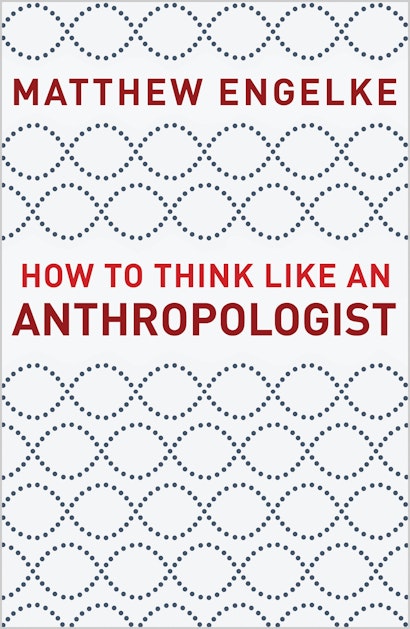What is anthropology? What can it tell us about the world? Why, in short, does it matter? For well over a century, cultural anthropologists have circled the globe, from Papua New Guinea to suburban England and from China to California, uncovering surprising facts and insights about how humans organize their lives and articulate their values. In the process, anthropology has done more than any other discipline to reveal what culture means—and why it matters. By weaving together examples and theories from around the world, Matthew Engelke provides a lively, accessible, and at times irreverent introduction to anthropology, covering a wide range of classic and contemporary approaches, subjects, and practitioners. Presenting a set of memorable cases, he encourages readers to think deeply about some of the key concepts with which anthropology tries to make sense of the world—from culture and nature to authority and blood. Along the way, he shows why anthropology matters: not only because it helps us understand other cultures and points of view but also because, in the process, it reveals something about ourselves and our own cultures, too.
Matthew Engelke is professor of anthropology at the London School of Economics and Political Science. An award-winning author and teacher, he is also a former editor of the Journal of the Royal Anthropological Institute.
"Informing and perhaps occasionally startling readers who aren't themselves anthropologists—is a profoundly important goal. Engelke achieves his goal with crystal-clear writing, and occasional humor, too."—Barbara J. King, NPR
"An affable introduction to the discipline."—James Ryerson, New York Times Book Review
"Praise for the UK edition: "Clearly the work of an author having tremendous fun with material he knows inside out . . . [T]hinking like an anthropologist is something that we should all do more often.""—Simon Underdown, Times Higher Education
"How to Think Like an Anthropologist accomplishes what it sets out to do in a clear and elegant way. It is an excellent introduction to the discipline and will be equally suited to the student of anthropology or the general reader interested in learning more about the field. And for veteran scholars in other fields who might be less well-acquainted with anthropology, perhaps How to Think Like an Anthropologist will give them pause for thought about what and how they think, and why."—Yusuf Lenfest, Reading Religion
"[A] book written with great verve. . . . Whether you have some knowledge of anthropology but want to be more sure about the accuracy of what you think you already understand, or you have always wanted to know what anthropologists are up to but could never find a good path into the discipline . . . this is a book for you."—Joel Robbins, Journal of the American Academy of Religion
"We may not do research in faraway places or even nearby, among our curious neighbors, but we all need to be anthropologists. Thinking like an anthropologist means stopping to consider our common-sense categories in critical, comparative, and historically informed ways. Matthew Engelke's admirably lucid book gives us the tools we need."—James Clifford, author of Returns: Becoming Indigenous in the Twenty-First Century
Praise for the UK edition: "How to Think Like an Anthropologist is a terrific introduction to the field. Beautifully written, winningly told, and provocative, the book captures the basic feature of the discipline: that anthropology is a way of seeing and thinking. Anthropology invites you to see yourself as someone else might see you. In this way, it is the most world-changing of fields."—T. M. Luhrmann, author of When God Talks Back
Praise for the UK edition: "Accessible yet genuinely insightful, this is a lively, original, and inclusive introduction to anthropology both as a scholarly discipline and as a way of life. It combines superb storytelling and broad coverage—ranging from the classics to the author's own fieldwork experiences—and shows why anthropology really ought to be seen as the core of the social sciences: a discipline that trains one's brain to look deeply and empathetically into the lives of others."—Charles King, Georgetown University
Praise for the UK edition: "Playful and perceptive, Matthew Engelke welcomes readers into the fascinating history and profound insights of anthropology. This elegant synthesis shows how the discipline can change the way we think about the world."—Caitlin Zaloom, author of Out of the Pits: Traders and Technology from Chicago to London


